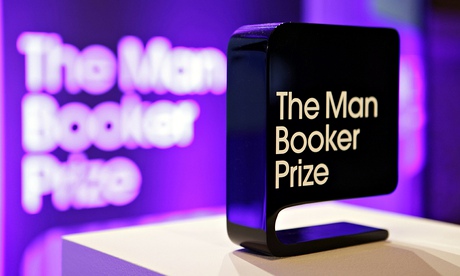
Shortly after 10.30am BST on Tuesday we'll discover which six authors have made it onto this year's Man Booker prize shortlist. In the year the prize opens up to the world, we're wondering: how many of that half-dozen will be American? And with only three women on the 13-strong longlist, how many books by female authors will we see?
Whether through deep and wide reading, review-browsing or cynical second-guessing, it's predictions time. A straw poll of the Guardian books desk produced an unusual level of consensus (and the usual widespread cries of "but I'm always wrong … "). Everyone thinks David Mitchell's bravura fantasy The Bone Clocks will be there, for brilliant prose and readerly pleasure; ditto Ali Smith's How to be both, the double story of a Renaissance painter and a contemporary teenager, for its originality and playfulness.
Also in the mix were Neel Mukherjee's The Lives of Others, about poverty, family and politics in 60s India. It was lauded by AS Byatt on our pages and has that "Booker book" feel – as does Richard Flanagan's The Narrow Road to the Deep North, acclaimed by Thomas Keneally in his review as a rich insight into the experiences of Australian PoWs used as forced labour on the Burma railway. Howard Jacobson's sideways look at the history of anti-semitism and the infantilisation of today's society, was heralded by John Burnside as perhaps "the dystopian British novel of its times": all three books have been garnering fantastic reviews. Richard Powers is one of America's smartest and most exciting writers: Orfeo, a "formidably intelligent and ecstatically noisy novel", as Steven Poole put it, was on lots of our lists.
Other names that came up were Netherland author Joseph O'Neill for The Dog, a timely story of the rise and rise of the super-rich – though the Guardian's review was guarded – and Paul Kingsnorth, for his crowd-funded novel written in cod-Old English about resistance to the Norman conquest, The Wake. ("A literary triumph," said our review.) It would be great to see such a left-field book on the shortlist; Eimear McBride's similarly experimental A Girl is a Half-formed Thing looked an unlikely winner of the Baileys prize at first, but perhaps hard times call for hard books …
One American, and only one woman – can that be right? Tomorrow morning will reveal how wrong we are – in the meantime, find out more about the longlist here and share your predictions below.
The longlist in full
Joshua Ferris (US) – To Rise Again at a Decent Hour
Richard Flanagan (Australia) – The Narrow Road to the Deep North
Karen Joy Fowler (US) – We Are All Completely Beside Ourselves
Siri Hustvedt (US) – The Blazing World
Howard Jacobson (UK) – J
Paul Kingsnorth (UK) – The Wake
David Mitchell (UK) – The Bone Clocks
Neel Mukherjee (UK) – The Lives of Others
David Nicholls (UK) – Us
Joseph O'Neill (Ireland) – The Dog
Richard Powers (US) – Orfeo
Ali Smith (UK) – How to Be Both
Niall Williams (Ireland) – History of the Rain

